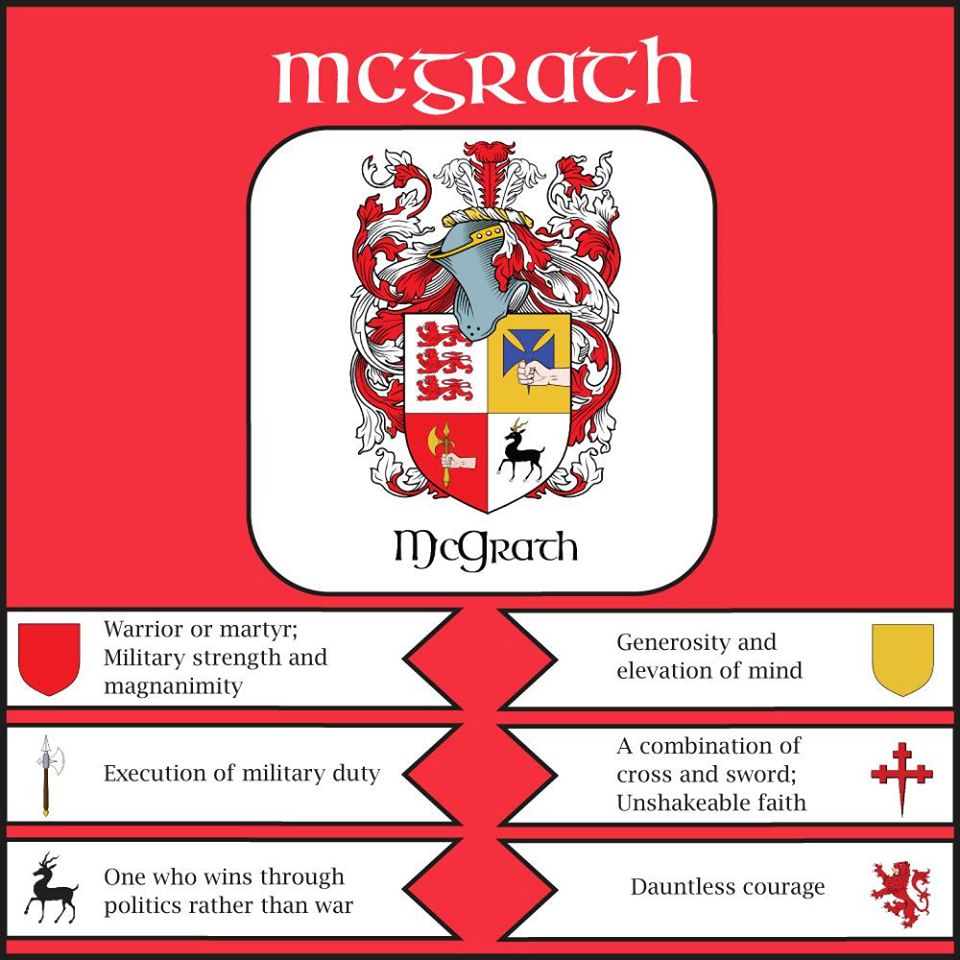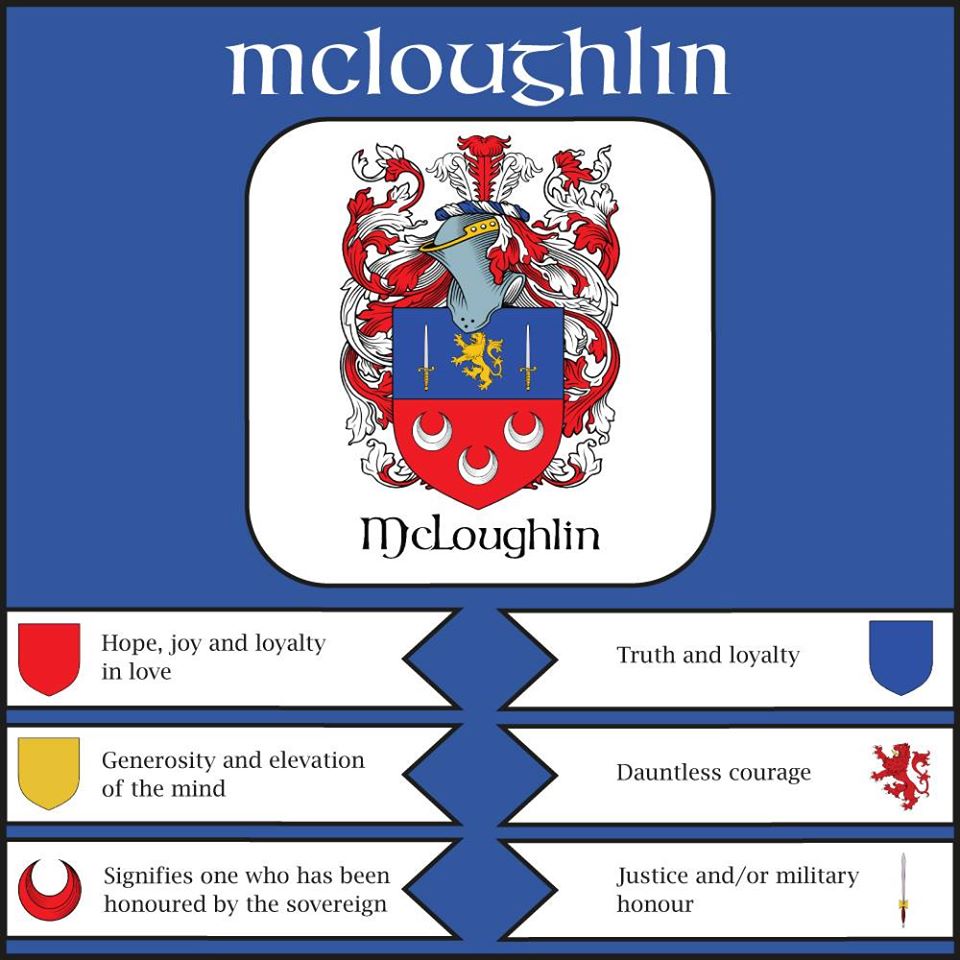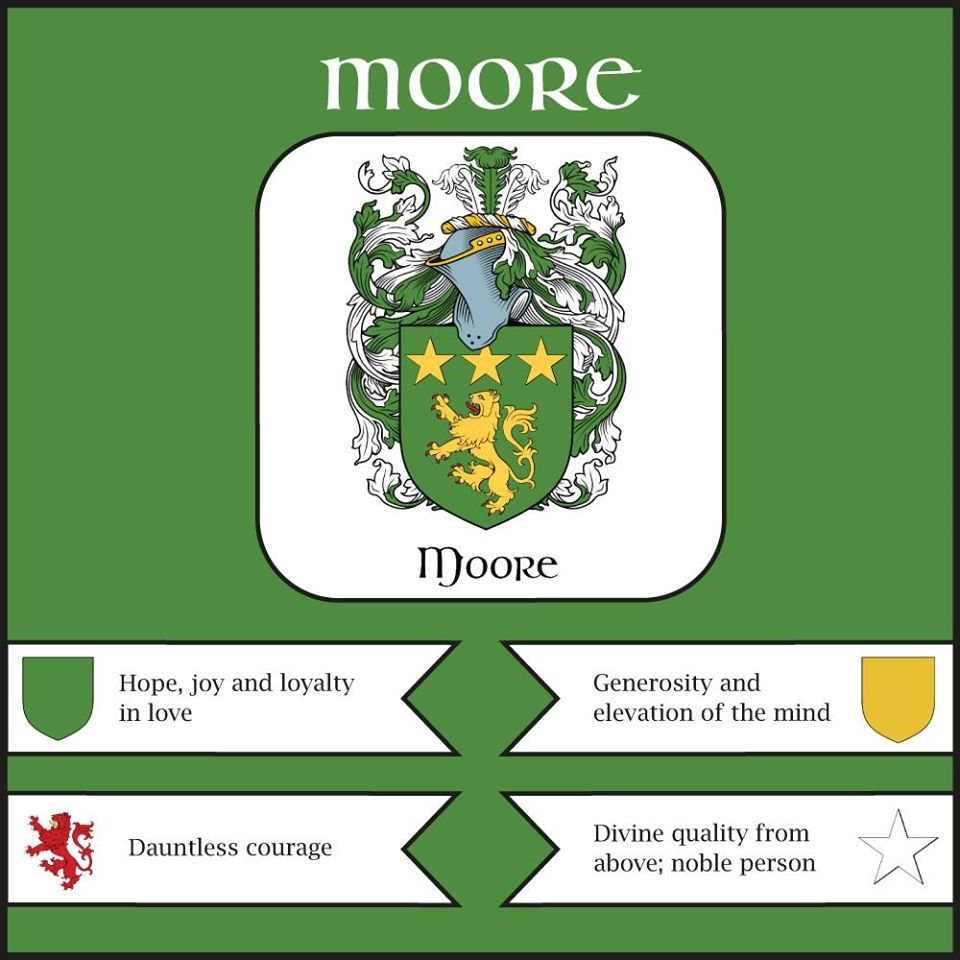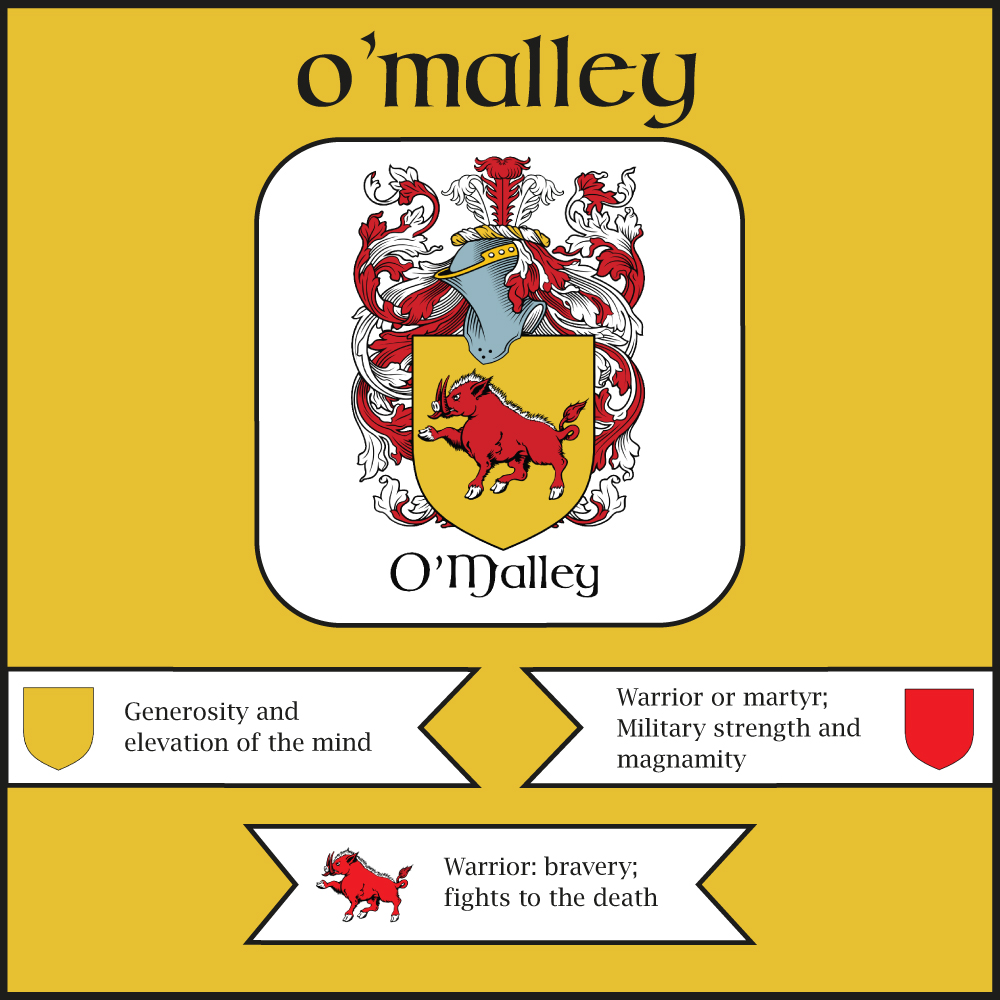|
Author
|
Message
|
|
|
Posted Tue 3 Dec 2019 10:37 AM
|
Island of Ireland
Posts: 383
Group: Community Member
Last Active: Fri 10 May 2024 11:23 AM
Visits: 10.1K
|
The popular surname McGrath, originally MacGraith, meaning son of ‘Craith’ (prosperity or grace), originated with two ancient clans in Ireland. The first clan was from County Clare, before migrating to County Waterford around 1400AD. This clan included the hereditary poets to the O’Briens of Thomond. The second McGrath clan was from County Donegal, where they were hereditary guardians to the ancient monastery lands at Lough Derg. 
|
|
|
|
|
|
Posted Tue 3 Dec 2019 10:39 AM
|
Island of Ireland
Posts: 383
Group: Community Member
Last Active: Fri 10 May 2024 11:23 AM
Visits: 10.1K
|
This surname and its many variants came from two entirely different clans in ancient Ireland. The first clan was not a ‘Mc’ clan at all, but in fact was originally O’Maoilsheachlann (oh-mway-ill-shock-lynn), which was anglicised as O’Melaghlin until the end of the 17th century. This name means ‘descendent of a devotee of Saint Secundinus,’ with this clan descending from the devotee better known as Malachy, High King of Ireland 980-1224. The second McLoughlin clan belonged to Inishowen in County Donegal, and they were called MacLochlann, meaning ‘son of Lochlainn,’ deriving from a Norse personal name. This doesn’t, however, imply that they were of Norse descent. The clan was part of a senior branch of Northern Uí Neill, with its territory in Inishowen. 
|
|
|
|
|
|
Posted Tue 3 Dec 2019 10:42 AM
|
Island of Ireland
Posts: 383
Group: Community Member
Last Active: Fri 10 May 2024 11:23 AM
Visits: 10.1K
|
The name Moore has two separate origins, and it can be very difficult for people today to distinguish if they are of Irish or Anglo-Norman descent. One branch of the name is of Anglo-Norman origin, which spread through England, Ireland, Scotland, and Wales. In Ireland, the Anglo-Norman Moores were called ‘de Mora’. The old Irish Moore is derived from the Gaelic ‘O’Mordha’ – ‘O’ meaning descendant of, and ‘Mordha’ meaning great, chief, mighty or proud. It is said that the Irish Moores are descended from Conall Cearnach, a mighty Chieftain of the legendary Knights of the Red Branch, a group of brave warriors and protectors of ancient Ireland. On the island of Ireland, Moore is in the top twenty most popular surnames, and you'll find a number of Moores in the Munster and Ulster provinces. 
|
|
|
|
|
|
Posted Tue 3 Dec 2019 10:44 AM
|
Island of Ireland
Posts: 383
Group: Community Member
Last Active: Fri 10 May 2024 11:23 AM
Visits: 10.1K
|
Nolan comes from ‘O’Nuallain,’ with 'nuall' meaning famous or noble. The name originated in the Barony of Forth in County Carlow. In pre-Norman times, the Nolan clan was known as the Princes of Foharta and held high hereditary office under the Kings of Leinster. However, their power was greatly diminished when the Normans arrived. In the 16th century, the family secured a large amount of land in counties Mayo and Galway, to which many of the Nolans migrated. The name remains popular in these counties to this day. And, of course, many people with the Nolan surname can still be found in County Carlow. 
|
|
|
|
|
|
Posted Mon 16 Dec 2019 11:03 AM
|
Island of Ireland
Posts: 383
Group: Community Member
Last Active: Fri 10 May 2024 11:23 AM
Visits: 10.1K
|
Meaning ‘strong as a wolf’, there were three distinct O’Connell clans around the island of Ireland in Ulster, Connacht, and Munster. The most prominent of these were the O’Connells of Munster – recorded as chiefs of the barony of Magunihy in east Kerry. This O’Connell clan was pushed toward the Atlantic coast by the O’Donoghues in the 11th century, moving their power to Ballycarbery, County Kerry. Aside from the Munster clan, the Ulster O’Connell clan bore the hero Conall Cearnach, a son of Niall of the Nine Hostages, who gave his name to Tirconnell – now known as County Donegal. 
|
|
|
|
|
|
Posted Mon 30 Dec 2019 2:47 PM
|
Island of Ireland
Posts: 383
Group: Community Member
Last Active: Fri 10 May 2024 11:23 AM
Visits: 10.1K
|
Deriving from the Irish name O’Fearghailmeaning ‘man of valor’, this surname is one of the top 50 most common surnames in Ireland, with the largest concentration in its historical homeland of County Longford. The O’Farrell clan were lords of Annaly near Longford and the first chief of their clan was named Fearghail. The chief resided atLongphuirt Ui Fearghaill (O’Farrell's Fortress) from which the name CountyLongford derives, and this fortress became modern-day Longford town. 
|
|
|
|
|
|
Posted Tue 7 Jan 2020 9:19 AM
|
Island of Ireland
Posts: 383
Group: Community Member
Last Active: Fri 10 May 2024 11:23 AM
Visits: 10.1K
|
Thought to derive from the Celtic word for chief (maglios), the clan name in Irish was Ó Máille or Ní Mháille, depending on if you were a man or a woman. The name originated in County Mayo, where the clan held a family seat. A clan often led by women, the O’Malleys were well known for their maritime prowess, with one such leader being the legendary Grace O’Malley! 
|
|
|
|
|
|
Posted Mon 20 Jan 2020 11:11 AM
|
Island of Ireland
Posts: 383
Group: Community Member
Last Active: Fri 10 May 2024 11:23 AM
Visits: 10.1K
|
Coming from the personal name Niall, this prestigious family can be traced back to 360 AD. The O’Neills descended from the royal family of Tara, who were kings and monarchs of all Ireland from the 5th to the 17th century. The surname came from Niall Glúin Dubh(Niall of the black knee) who was King of Ireland in the 9th century, with the first recorded spelling of O’Neill that of his grandson, Domhnall O’Neill. Of course, one famous ancestor of the clan was the legendary Niall of the Nine Hostages, with his descendants taking the surname Uí Néill! Though the O’Neills were most numerous in Ulster (once the ancient territory of the O’Neills), the name also spread to Clare, Limerick, Waterford, and Carlow! 
|
|
|
|
|
|
Posted Mon 17 Feb 2020 1:49 PM
|
Island of Ireland
Posts: 383
Group: Community Member
Last Active: Fri 10 May 2024 11:23 AM
Visits: 10.1K
|
The surname O’Shea is derived from the Gaelic O’Seaghda, meaning either “hawk-like” or “stately”. Originating in county Kerry, the O’Shea’s ancestral power base is located at the Iveragh Peninsula. A notable amount of O’Sheas moved to County Tipperary in the 14th century, while a contingent of the original clan – at that time known as the Shees – relocated to Kilkenny and became the most influential of the Ten Tribes of Kilkenny. The is still very popular in Counties Kerry, Tipperary and Kilkenny. 
|
|
|
|
|
|
Posted Wed 1 Apr 2020 3:46 PM
|
Island of Ireland
Posts: 383
Group: Community Member
Last Active: Fri 10 May 2024 11:23 AM
Visits: 10.1K
|
Quinn is a Celtic name derived from the word “conn”, which means “counsel” or “wisdom. In its original, anglicised form, the surname was spelled O’Cuinn. The earliest variant appeared in the Dalcassian sept of Thomond, based around Corofin in County Clare, as well as the Glens of Antrim. The first noted member of the sept was Niall O’Cuinn, who was killed at the Battle of Clontarf in 1014. An O’Cuinn was also a chief of Teffia, in Ireland’s midlands, with a stronghold based in Rathcline, County Longford. The surname is especially popular in Tyrone, as well as Antrim, Clare, and Longford. 
|
|
|
|